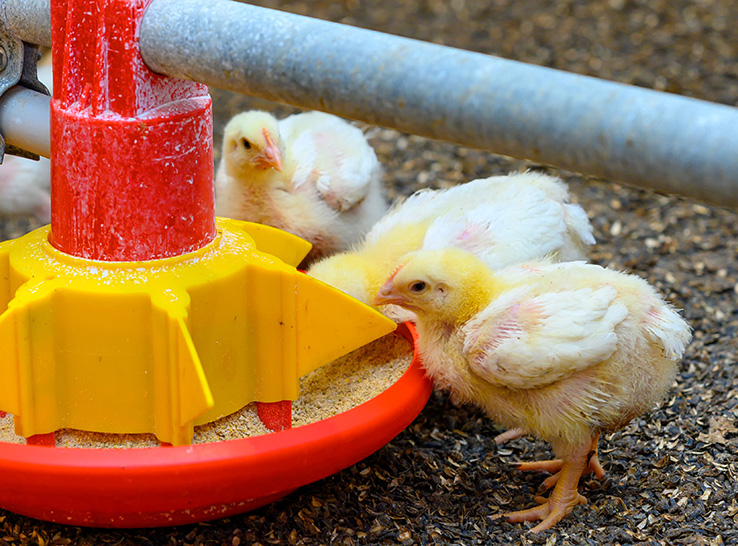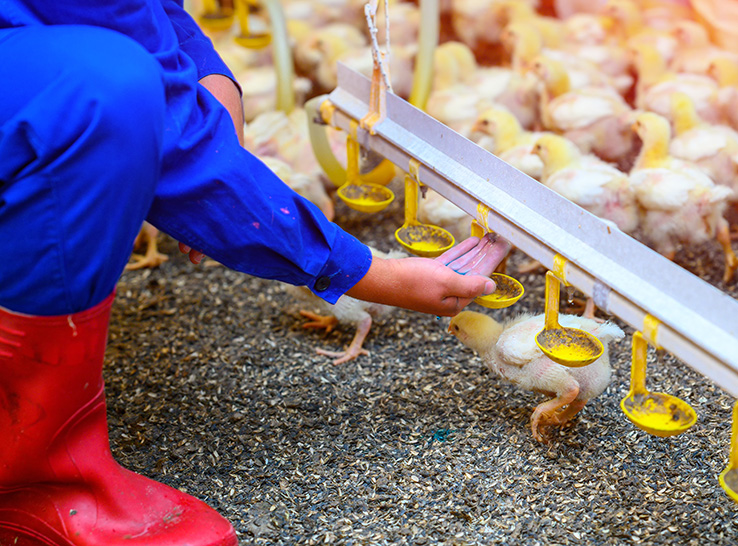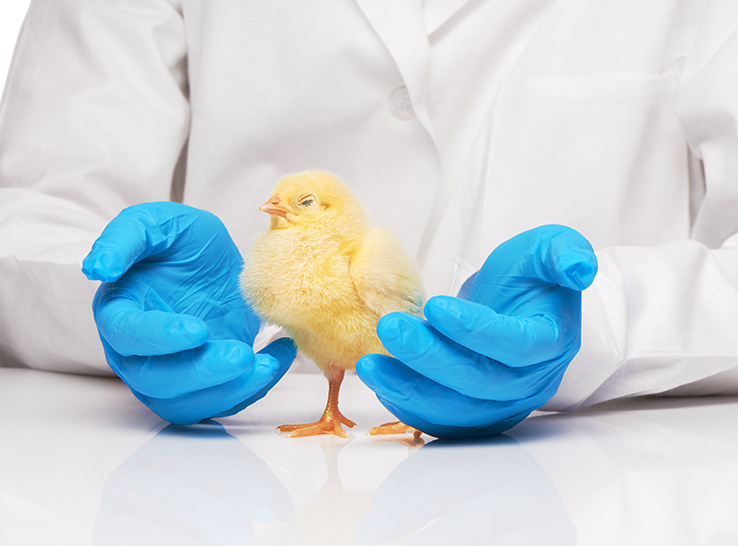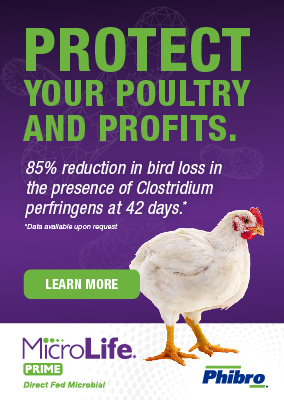A multi-species microbial feed product outperformed single-species products during a disease challenge, according to research presented at the 2024 International Poultry Scientific Forum by Kevin Bolek, PhD, microbials innovation director for Phibro Animal Health.
Scientists from Phibro Animal Health tested the performance of MicroLife® Prime direct-fed microbial— a mix of four Bacillus species — and products consisting of the single species Bacillus licheniformis and Bacillus subtilis. Each feed product was fed to birds at different rates while supplemented with a corn-soy diet.
In a 21-day study, they allocated 8,736 birds into 14 treatment groups: each of the microbial feed products at four inclusion levels and non-medicated challenged and unchallenged controls.
The scientists used a multifaceted approach for the challenge, conducted at 1 day post- hatch. They challenged the birds with coccidia oocysts via water at a rate of 150,000 oocysts per bird. They also raised the birds on used litter from a high-mortality farm, which contained Clostridium perfringens, Eimeria parasites and other pathogens.
They measured bodyweights (BW), feed intake and mortality throughout the study. On the final study day, the scientists recorded lesions, collected excreta to count oocysts and measured breast yield.
Improved production and health metrics
Compared to the birds in the negative control group, challenged birds that received no microbial product had lower bodyweight gain (BWG) and whole-breast yield, as well as increased mortality, higher lesion scores and elevated oocyst shedding.
The researchers observed improved health and performance in the challenged birds that were fed the microbial products but not in the challenged birds that received no microbial product. They also found that birds fed MicroLife® Prime had better performance and health outcomes than those fed single-species products.
At the highest inclusion level, birds outperformed those fed single-species products in terms of final BW, BWG, whole-breast yield, lesion scores and oocyst count. Each of these parameters reached statistical significance, with measurements similar to those of the negative controls. Even at the lowest inclusion level, birds had significantly lower mortality, lesion scores and oocyst counts than birds fed the single-species products.
“Direct-fed microbials are increasingly used to improve the gut health of birds and, in turn, productivity outcomes. But there are different types of products available, containing both multiple- and single-species products,” Bolek said.
“In this work, the multi-species formulation consistently resulted in better outcomes for broilers facing a complex disease challenge, similar to that which they might face in the field. This can feed into producers’ knowledge of the product, helping them make informed decisions,” he added.
Editor’s note: Content on Modern Poultry’s Industry Insights pages is provided and/or commissioned by our sponsors, who assume full responsibility for its accuracy and compliance.








